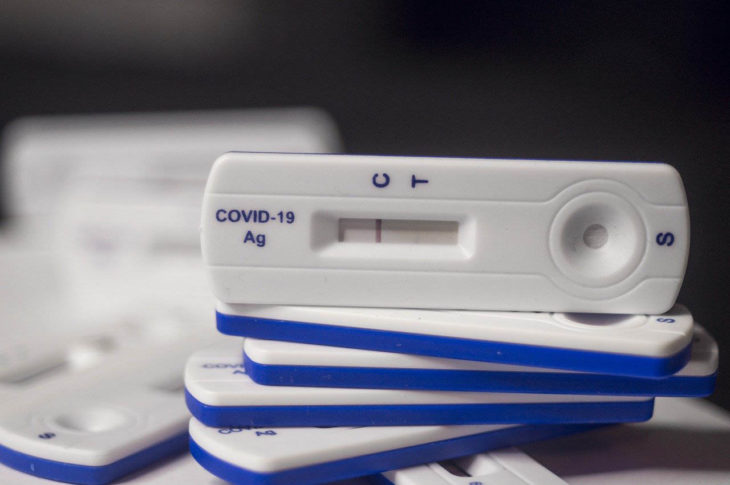
Covid testing is all over the news these days. As the Omicron and Delta variants of the virus continue to rise infecting people in record numbers obtaining a test is more difficult. Moreover, there are different types of testing available and deciding which one is right for you can be confusing.
Understanding the different types of testing and what their results mean is the key to making informed decisions about how to proceed. For traveling outside of the US a negative test, regardless of vaccine/booster status, is currently required. Many employers also require Covid testing before allowing employees to work with the public.
Types of Covid Testing
There are currently two types of tests which are used to detect active Covid infections. They are the molecular or PCR (polymerase chain reaction) test, which tests for RNA, or virus-related DNA, and takes about 24 hours to produce results. The PCR test is typically performed at county health testing sites, pharmacies and medical offices with results determined in a lab setting.
The rapid antigen test is much simpler in design and process. The individual or tester obtains a sample as in the molecular test through a nose swab and sometimes a throat swab. The testing kit uses a reagent on the sample to identify a chemical reaction indicating the presence of the virus. In order to achieve accurate results, there must be a higher level of the virus for a Covid-positive result to be determined.
While many of the same locations that offer the PCR test also offer rapid testing there are also testing kits for home testing. Results usually take about 10-15 minutes.
The Benefits of Rapid Antigen Covid Tests
Antigen testing for Covid has many benefits; they’re convenient, have a high accuracy rate, cost little to manufacture and the results come quickly. Covid testing allows those infected with the highly contagious virus and its variants to take precautionary measure against infecting others, especially when the individual is asymptomatic but has reason for concern due to exposure.
The rapid test for Covid is a game-changer in that it allows nearly immediate results. Home tests are very useful but can be tricky. They deliver accurate results based on viral load, which means you need to have the virus in your system long enough to shed a good amount of it for a sample. If you are asymptomatic, you need to calculate both the time it takes for the virus to develop in your system which can take up to two weeks, and the time it takes the virus to develop enough for an accurate sample. That’s why the CDC recommends weekly testing for those exposed to the virus.
Certainly if you exhibit symptoms of Covid and its variants you need to test within the two week incubation period. While there is a chance for a false negative result with the rapid antigen test, both at-home and at a testing site, the opportunity for a false negative at home is greater. If you suspect you have the virus and receive a fall negative on a home test, you should schedule with a testing site for follow-up.
Can I Have False Positive Results with A Rapid Test?
A recent study reported in the Journal of The American Medical Association, in response to concerns about rapid testing and false positive results, concurs that the rate of false positive results from rapid Covid tests is extremely low. The main concern of health systems is the overwhelming need for PCR testing based on false positive results.
Employees at a Canadian workplace took rapid antigen tests as an extra measure for transmission control of the virus. Tests performed on asymptomatic employees, with their consent, took place over a nine-month period. Some employees took at-home tests while others went through on-site screenings.
PCR follow-up testing took place within 24 hours of a positive rapid test. Identifying a false positive occurred when a negative PCR test followed a positive rapid test. Out of 903,408 raid tests the number of false positives was 462, or 0.05%.
What This Means for You
For those patients exposed to the virus and receive a positive Covid test based on rapid testing, yet continue to exhibit no symptoms, follow up with a second test before breaking quarantine. You may opt for a PCR test or a second rapid test performed at a testing site, just to up the accuracy.
If you receive a rapid test positive result and you show symptoms of the virus quarantine and contact your doctor. Those who are fully vaccinated are significantly less likely to become very ill from a breakthrough infection. Unvaccinated individuals have a much higher risk for developing dangerous complications from the virus which may lead to hospitalization and even death.
If you’re concerned about Covid test results and aren’t quite sure how to proceed, contact your physician. At LA IVF we strive to ensure the health of all of our patients. For those undergoing fertility treatment a positive Covid test, even without symptoms, is unsettling. Please contact us if you have concerns.










